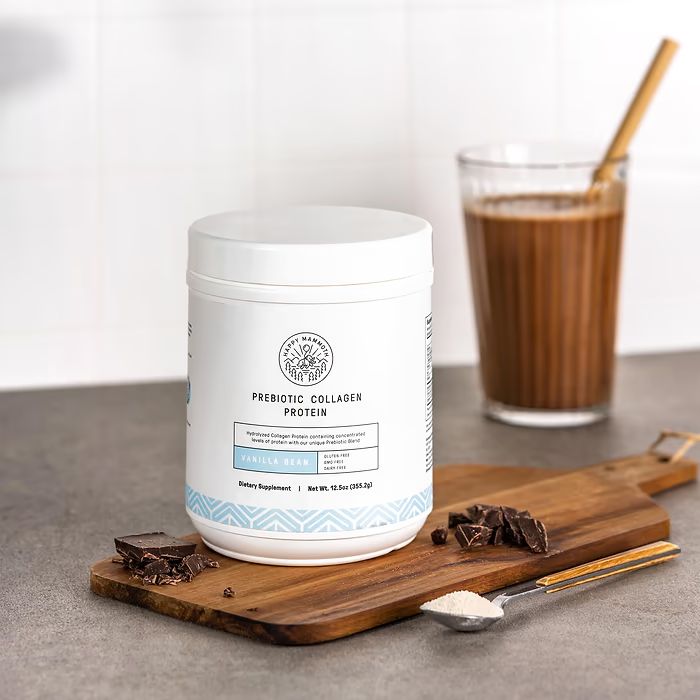In the ever-evolving landscape of dietary trends, the ketogenic diet has emerged as a frontrunner, capturing the fascination of health enthusiasts adn casual dieters alike. At its core, the keto approach emphasizes a delicate balance of macronutrients—high fats, moderate proteins, and minimal carbohydrates—leading the body into a state of ketosis where fat becomes the primary fuel source. Too supplement this lifestyle, keto protein powders have gained immense popularity, providing a convenient way to meet protein needs while adhering to strict carb limitations. But with so many products flooding the market,how can one navigate the nutritional maze to find the perfect blend that not only satisfies taste buds but also supports the goals of optimal ketosis? In this article,we will explore the world of keto protein powders,examining their role in achieving macro balance and providing insights on making informed choices that can elevate your keto experience. Whether your a seasoned keto veteran or just embarking on this nutritional journey, understanding the nuances of these powders can pave the way for success in your dietary aspirations. Join us as we delve into the art of balancing macros for optimal ketosis, one scoop at a time.
Keto-Friendly Protein Powders: Selecting the Right Blend for Your dietary Needs
When navigating the world of keto-friendly protein powders, it’s essential to scrutinize the labels closely. Unlike typical protein powders, those formulated for a ketogenic diet should boast low carbohydrate content while offering high-quality protein sources. Whey protein isolate, casein, and egg white protein are excellent choices, providing essential amino acids without spiking your insulin levels. Look for blends featuring minimal additives, sweeteners, and fillers, as these can disrupt your macro balance and potentially kick you out of ketosis. additionally, some protein powders come infused with MCT oil or collagen to further support your dietary goals.
To aid in selecting the right blend, consider the following factors:
- Protein Type: Choose between animal or plant-based, depending on your dietary preferences.
- Flavoring: Opt for natural flavors and sweeteners like stevia or monk fruit to avoid extra carbs.
- serving Size: Ensure the protein content per scoop aligns with your daily intake needs.
- Added Nutrients: Look for additional vitamins or minerals that complement your keto diet.
| Protein Powder | Protein per Serving | Carbs per Serving | Notes |
|---|---|---|---|
| Whey Protein Isolate | 25g | 1g | Fast-absorbing, rich in BCAAs |
| Egg White protein | 20g | 0g | Perfect for those avoiding dairy |
| MCT Oil Powder | 5g | 2g | Boosts energy and ketone production |

Understanding Macronutrient Ratios: Tailoring Your Protein Intake for Ketosis
To achieve an effective state of ketosis, striking the right balance in your macronutrient intake is essential. A low-carb,high-fat dietary approach is fundamental,but protein also plays a crucial role in this metabolic process. When determining your protein intake, it’s crucial to calculate the appropriate ratio tailored to your individual needs. Many people on a ketogenic diet aim for a protein intake of about 20-25% of their total caloric consumption, adjusting as necessary based on activity levels and personal goals. This adjustment helps maintain muscle mass while providing the necessary fuel for energy without kicking you out of ketosis.
When selecting protein powders suitable for a ketogenic lifestyle, consider the quality and type of protein you’re consuming. Good options include whey isolate, collagen peptides, and egg white protein. Not only do these powders provide essential amino acids to support muscle synthesis, but they also have minimal carbohydrates, which is vital for maintaining ketosis. Ensure that you are checking labels carefully to avoid hidden sugars or carb-heavy fillers. Below is a simple comparison of popular protein powders to guide your choice:
| Protein Powder | Protein per Serving | Carbs per Serving |
|---|---|---|
| Whey isolate | 25g | 1g |
| Collagen peptides | 20g | 0g |
| Egg White Protein | 20g | 0g |

enhancing Your Keto Diet: Recommended Protein Powders for Sustained Energy
when following a ketogenic diet, choosing the right protein powder can substantially affect your energy levels and overall health. It’s essential to opt for low-carb options that complement your macronutrient goals while ensuring you receive high-quality protein. Look for powders that provide at least 20 grams of protein per serving without excessive sugars or fillers. Whey protein isolate is a fantastic choice due to its rapid absorption and branched-chain amino acids (BCAAs), ideal for muscle recovery. If you’re plant-based, pea protein or a hemp protein blend can be beneficial, as they offer a good array of essential nutrients while keeping carbohydrates low.
Hear are some recommended protein powders that align perfectly with a keto lifestyle:
- Whey Protein Isolate – High in BCAAs and supports muscle growth.
- Casein Protein – Provides sustained release of amino acids, great for overnight recovery.
- Pea Protein – Blended with other plant proteins for a complete amino acid profile.
- Egg White Protein – Low in carbs and rich in natural vitamins and minerals.
- Collagen Protein – Supports joint and skin health while being low-carb.
Choosing the right protein powder can keep you fueled and focused throughout your day. Here’s a quick comparison of some popular options:
| Protein Powder | Protein/Serving | Carbs/Serving |
|---|---|---|
| Whey Protein Isolate | 25g | 1g |
| pea Protein | 20g | 2g |
| Egg White protein | 24g | 0g |
| Collagen Protein | 20g | 0g |

Delicious Ways to incorporate Protein Powders into Your Keto Lifestyle
Elevating your keto meals with protein powder can be a game-changer for both flavor and nutrition. Consider adding a scoop of vanilla or chocolate protein powder to your morning bulletproof coffee for an extra boost of energy and satiety. Alternatively, blend it into a creamy keto smoothie with ingredients like spinach, coconut milk, and avocado for a nutritious breakfast or snack.The combination not only enhances taste but also supports your daily protein intake, ensuring that you stay within your macro goals while enjoying delightful flavors.
If you’re in the mood for something savory, why not try incorporating protein powder into your keto-friendly baked goods? Use it in recipes for pancakes, muffins, or even bread. A few key ideas include:
- Keto Protein Pancakes: Replace a portion of the almond flour with your favorite protein powder.
- Protein-Packed Muffins: Mix protein powder into almond flour muffin batter for a nutritious treat.
- Protein-enriched Bread: Add whey or plant-based protein to low-carb bread recipes for improved texture and nutrition.
Additional versatile options for integrating protein powder into your meals are using it in savory soups and sauces. Simply whisk a scoop into your broth or sauce to thicken it while adding much-needed protein. This way, you can easily enjoy a satiating and low-carb diet without sacrificing flavor.
Future Outlook
navigating the world of keto protein powders offers a unique opportunity to enhance your dietary goals while maintaining optimal ketosis. By understanding the intricacies of macronutrient ratios,ingredient quality,and the overall nutritional profile of these supplements,you can make informed choices that align with your lifestyle. It’s not just about protein; it’s about crafting a balanced approach to your health and wellness journey. Whether you’re a seasoned ketogenic aficionado or just starting on this low-carb path,finding the right protein powder can serve as a valuable ally in sustaining your energy levels,supporting muscle maintenance,and enjoying the diverse culinary creativity the keto diet has to offer. Armed with knowledge and a touch of experimentation, you can rise to meet your goals—one scoop at a time.



